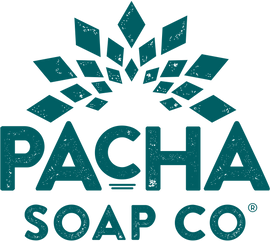Are Bath Bombs Safe For My Tub?
There’s nothing quite as nice as slipping into a hot, frothy bath at the end of a long day to soothe your muscles and calm your spirit. But if you’re partial to using a fizzy bath bomb to get that moment of peace, you might be wondering, “Is using a bath bomb going to hurt my tub or my drains?”
Luckily, bath bombs are generally pretty safe for most tubs as long as you maintain them! Here’s what you should know about using bath bombs safely.
What are bath bombs?
Bath bombs are solid bath products that can be placed into your tub during bathtime. When the bombs come into contact with hot water, the moisture causes them to fizz and then dissolve. Many bath bombs also contain nourishing skincare ingredients and/or oils and plant extracts for promoting relaxation and mood.
Are bath bombs safe for my tub?
In general, bath bombs are safe for your tub since they don’t inherently contain ingredients that are harmful to your tub or the drains. However, depending on the brand and the recipes that they follow, some bath bombs may also include certain ingredients that lead to clogging or staining.
Common bath bomb ingredients
Most bath bombs are made with three key ingredients:
- Baking soda
- Citric acid
- Cornstarch
Baking soda and citric acid are the signature ingredients that differentiate bath bombs from other bath products. When exposed to hot water, these two ingredients dissolve and start a reaction with each other that results in that signature fizzing that you think of when you think of bath bombs. Many bath bombs also contain cornstarch, which is added to the formula to slow down the fizzing reaction and make the bomb last longer for a more prolonged bath experience.
In addition to these three ingredients that are responsible for the reaction unique to bath bombs, you can also find a variety of therapeutic ingredients that address mind and body needs. For example, some common ingredients that you may find in Pacha’s Froth Bombs include:
- Epsom salts for muscle relaxation
- Essential oils for scent, relaxation, and/or invigoration
- Moisturizing ingredients like cocoa butter, honey, or shea butter to promote hydration
Finally, some bath bombs may also contain other additive ingredients like dried flower petals that add to the bath experience and may also carry therapeutic benefits of their own (like lavender and chamomile for relaxation, for example).
Bath bombs and plumbing
The main ingredients found in bath bombs (baking soda, citric acid, and cornstarch) are not bad for your bathtub or your drains. However, other ingredients can clog your tub over time and with regular use if you aren’t regularly maintaining your drains. Some bath bombs might also run the risk of not fully dissolving, which can lead to buildup and clogs over time. Finally, certain dyes may stick around to your bathtub finish if they are not rinsed away properly.
How to make sure your bath bombs don’t ruin your tub
But just because some ingredients aren’t the best for your bathtub, it doesn’t mean that you can’t enjoy your bathtime to the fullest! Here’s what to do to ensure that your bath products are safe.
Clear out your drain frequently, especially if you use bath bombs and other bath products frequently.
Pour boiling water down the tub to help dissolve any remaining materials that might be in the drain like salt. Then, pour in a mixture of baking soda and vinegar and close the tub stopper. The fizzing reaction between the baking soda and the vinegar can help clear out any clogs. If your tub is especially clogged, you may need to “snake” your drain using a long, thin wire.
Avoid using bath bombs with plastic glitter.
Glitter is often made out of tiny pieces of plastic, which means that those microplastics can end up clogging your tub over time (or worse: making their way into the water supply system). So the best route is to avoid using bath bombs with glitter altogether. If you do want some glitter fun out of your bath bombs, make sure they are derived from biodegradable ingredients to avoid harming your tub and the environment.
If your bath bomb has larger ingredients like flower petals, wrap them in a cloth or sock before using.
This can help catch those sediments and materials before they get into your drain and contribute to a blockage.
Rinse your bathtub well after a bath.
This will prevent dyes from sticking around and potentially staining your tub.
A few of our favorite Froth Bombs
The best way to make sure your bath bomb is safe? Buy high-quality products!
Uplifting Flower Power Froth Bombs
Made with a deliciously fresh combination of rose petals, chamomile, jasmine, and lavender for a bath that’ll lift your spirits and have you feeling like you’re twirling around in a field full of flowers.
Golden Chai Froth Bomb
This mouthwatering seasonal favorite is a bestseller for a reason! It features luxurious ingredients that any skincare enthusiast wants. Hydrating coconut oil, brightening turmeric, and moisturizing raw honey that’ll leave your skin soft and smooth after your bath.
Salvaged Suds Mystery Froth Bomb 10-Pack
If your passion for a relaxing bathtime is rivaled only by your desire to minimize waste, this froth bomb combo is for you. Each purchase gets you a mystery assortment of Froth Bombs that were made with minor manufacturing errors that definitely won’t take away from the luxuriant bath experience.
Pacha Peaces Froth Bombs
Having a hard time choosing between our many tempting Froth Bomb options? Might as well get a pack of our favorites! This combo pack contains four of our best Froth Bomb scents (French Lavender, Sweet Honey Almond, Rosewater, and Jasmine Gardenia) so that you can relax and luxuriate no matter what kind of mood you’re in.
The bottom line
Most bath bombs are perfectly safe for your tub as long as you keep your drains clean and avoid bombs with excess glitter or other unnecessary additives.
Read our other popular posts.
Bar soap vs. Body wash - What's the difference?





